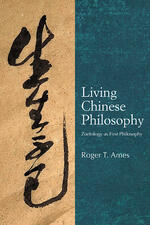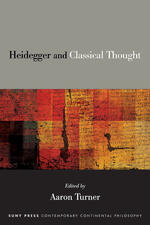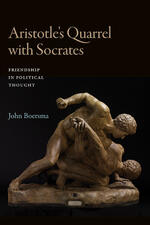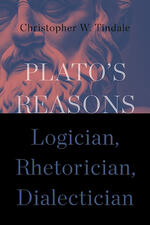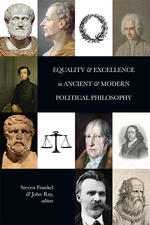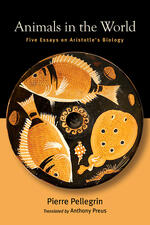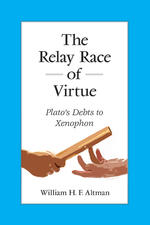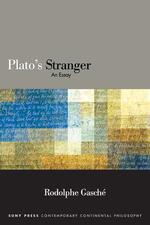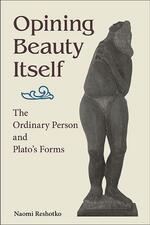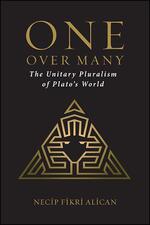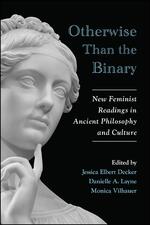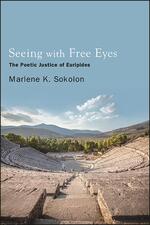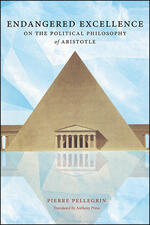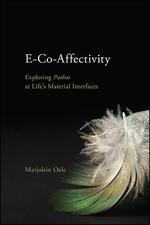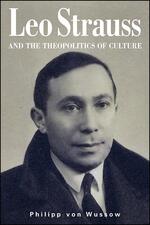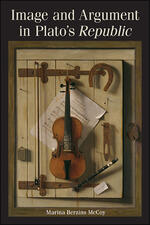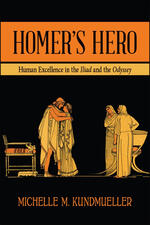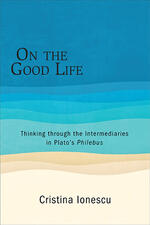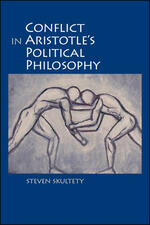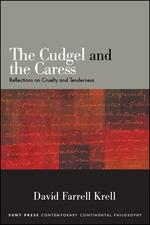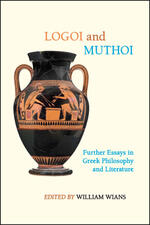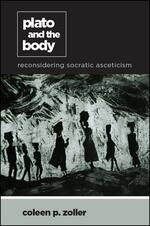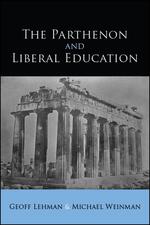Ancient Greek Philosophy
Islamic Philosophy and the Crisis of Modernity
Unveils the profound influence of medieval Islamic philosophy on the thought of Leo Strauss.
Living Chinese Philosophy
Contrasts classical Greek ontology ("the science of being in itself") with Confucian "zoetology" ("the art of living").
Heidegger and Classical Thought
Explores Martin Heidegger's rich and profound engagement with ancient philosophy and literature and demonstrates both his essential place within the discourse of classical studies and the fundamental significance of classical thought for his own work.
Aristotle's Quarrel with Socrates
Makes the case that the different stances Aristotle and Socrates take toward politics can be traced to their divergent accounts of friendship.
Plato's Reasons
Studies Plato's approach to argumentation, exploring his role as logician, rhetorician, and dialectician in a way that sees these three aspects working together.
Equality and Excellence in Ancient and Modern Political Philosophy
Interpretations of critically important texts in political philosophy from Greek antiquity to modern times on the tension between human excellence and equality and its possible resolution.
Animals in the World
Five innovative essays demonstrating how Aristotle's biology is an integral part of Aristotle's understanding of the universe.
The Relay Race of Virtue
Demonstrates that Plato and Xenophon ought to be regarded less as rivals and more as engaged in a dialogue advancing a common goal of preserving the Socratic legacy.
Plato's Stranger
Meditation on the character of the Eleatic Stranger in Plato's late dialogues, arguing that the prominent place afforded to this foreigner—the other—represents an important philosophical and political legacy regarding the way thought, and life in the community, is understood.
Opining Beauty Itself
Argues that Plato thinks that ordinary people grapple with the Forms and can make epistemological progress, even if they never achieve knowledge.
One over Many
Corrective intervention in Plato's metaphysics replacing the standard view of Plato as a metaphysical dualist with a novel and revolutionary paradigm of unitary pluralism in a single reality built on ontological diversity.
Otherwise Than the Binary
Examines traditional sites of binary thinking in ancient Greek texts and culture to demonstrate surprising ambiguity, especially with regard to sexual difference.
Seeing with Free Eyes
Examines the ideas of justice in Euripidean tragedy, which reveals the human experience of justice to be paradoxical, and reminds us of the need for humility in our unceasing quest for a just world.
Endangered Excellence
A fresh look at Aristotle’s political theory with attention to the resonance of his thought for contemporary concerns.
E-Co-Affectivity
Offers an interdisciplinary investigation of affectivity in various forms of life.
Leo Strauss and the Theopolitics of Culture
This archive-based study of the philosophy of Leo Strauss provides in-depth interpretations of key texts and their larger theoretical contexts.
Image and Argument in Plato's Republic
Argues that images are at the heart of the dialogue’s philosophical argumentation.
Homer's Hero
Draws on Plato to argue that Homer elevated private life as the locus of true friendship and the catalyst of the highest human excellence.
On the Good Life
Argues that mediation is a central theme in this Platonic dialogue dedicated to the exploration of what it means to live a good life.
Being Measured
Advances an interpretation of Aristotle’s theory of truth in terms of accurate measurement.
Conflict in Aristotle's Political Philosophy
Offers a careful analysis of how Aristotle understands civil war, partisanship, distrust in government, disagreement, and competition, and explores ways in which these views are relevant to contemporary political theory.
The Cudgel and the Caress
Offers philosophical and psychological reflections on cruelty and tenderness.
Logoi and Muthoi
Essays on Greek philosophy and literature from Homer and Hesiod to Aristotle.
Plato and the Body
Offers an innovative reading of Plato, analyzing his metaphysical, ethical, and political commitments in connection with feminist critiques.
The Parthenon and Liberal Education
Discusses the importance of the early history of Greek mathematics to education and civic life through a study of the Parthenon and dialogues of Plato.

